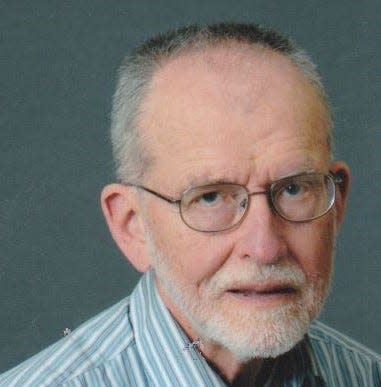Vladimir Putin: Hitler II or Bismarck II?
- Oops!Something went wrong.Please try again later.
- Oops!Something went wrong.Please try again later.

Historical analogies are always dangerous and incomplete, but as long as we remember their limitations, sometimes analogies are useful in trying to understand current developments.
An obvious question for today is whether Vladimir Putin is Hitler II or Bismarck II. We must hope that he is like Bismarck.
Otto von Bismarck (1815-98) started several small and successful wars leading to the political unification of Germany. Bismarck knew enough to quit his military adventures while he was ahead.
Adolf Hitler (1889-1945) lacked Bismarck's wisdom and caution. Proclaiming the limited aim of reuniting areas populated by German speakers in neighboring countries, Hitler claimed to be a man of peace. (He just wanted a piece of Czechoslovakia, a piece of Poland, etc.!) But he had bigger plans, and set off World War II, disastrously for Germany, for Hitler, and for the whole world.
Based on his overall record, I think Putin is probably more like Bismarck. But there is no way to be sure about this, and it may just be wishful thinking on my part. Indeed, his recent speeches sound a lot more like Hitler.
The world can live with small wars over contested territory. Indeed, such wars have been how political boundaries have traditionally changed. Looking at a historical atlas of Europe during the last thousand years, one cannot help being impressed by how unstable boundaries have been.
What is unusual is the idea, widely held since World War II, that using force to change boundaries is illegitimate. Unfortunately, no institutions have been created which offer a peaceful way to change boundaries, and history suggests that boundaries are inherently unstable. The Russian seizure of Crimea and now its invasion of Ukraine may just be an open return to traditional ways of doing business.
During the 1982 Falkland Islands War between the United Kingdom and Argentina, students asked me which country really had the right to govern the Falkland Islands. I replied that we wouldn't know until we saw who won that war. It turned out to be the U.K. But its war was defensive, since the war was started by Argentina.
Contrary to Putin's lies, Ukraine did not start this war. A runt doesn't pick on a 300-pound bully.
The economic sanctions imposed on Russia by the U.S. and our allies will probably do more damage to the world than the invasion itself. But something had to be done, if only because of domestic political considerations, and a military response would have been even more damaging.
If Putin is like Bismarck, he won't be foolish enough to attack the Baltic countries using the pretext that they have discriminated against the Russian minorities who were stranded there when the Soviet Union broke apart in 1992. That would force a military response from NATO, since Latvia, Lithuania and Estonia are members of it, and probably set off World War III.
China's leaders are probably watching the Ukrainian situation carefully, because of their claims to Taiwan. But the military situation of Taiwan is very different from that of Ukraine.
Taiwan is separated from the Chinese mainland by about 100 miles of ocean. As D-Day in World War II showed, moving a large number of ground forces across a similar ocean distance is logistically difficult.
And modern military technology would allow the U.S. to decimate the invaders before they ever reached the shores of Taiwan without using atomic weapons that could ignite a catastrophic war.
Still, anything that encourages the Chinese leaders to attempt to invade Taiwan is regrettable.
Ironically, China might be inspired, if Putin's grab of Ukraine is successful, to itself grab a big part of the very thinly populated eastern areas of Russia. Russia, with its shrinking population, would be hard put to defend this area against overwhelming Chinese manpower.
Putin is teaching the world an unhappy lesson, but it could ultimately be at Russia's expense.
Paul F. deLespinasse is professor emeritus of political science and computer science at Adrian College. He can be reached at pdeles@proaxis.com.
This article originally appeared on The Daily Telegram: Paul deLespinasse: Vladimir Putin: Hitler II or Bismarck II?
